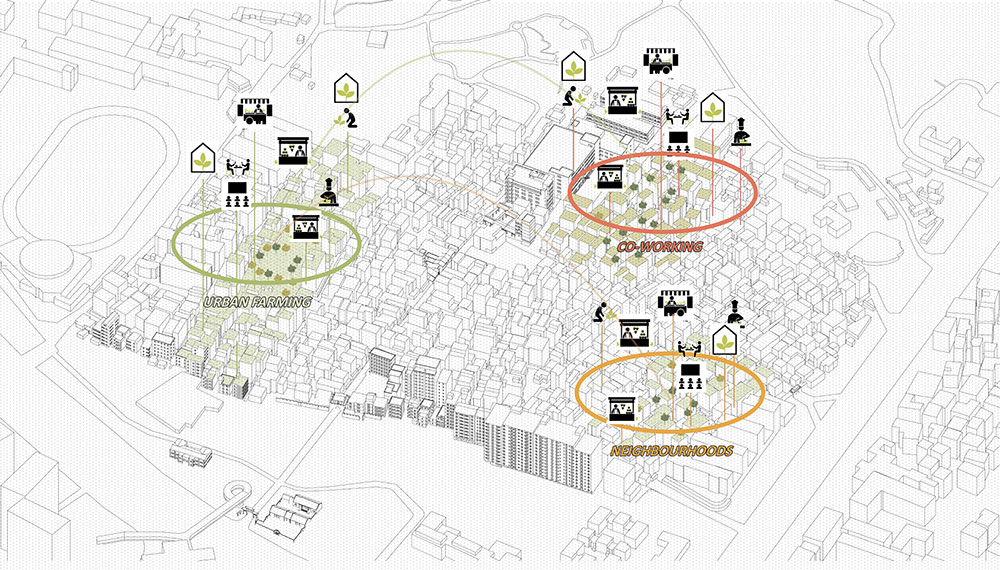In spite of the ongoing pandemic, which has continued to hamper global mobility, we welcomed another one hundred predominantly international students collectively across September and January intakes. The global nature of urbanism is truly reflected in this student group, with diverse experiences and perspectives to bring into discussions.
Continuing a tradition of huge variety, this year’s cohort started in their studio-based explorations of urban issues with ten wide-ranging briefs. This included everything from culturally and socially sensitive regeneration of Shanghai traditional neighbourhoods, to the shrinking population of rural Spain and the role of landscape and ecological networks in local Manchester territories. This set the scene for the subsequent individual projects, in which the students have pursued substantively diverse and geographically disparate interests. Projects include a model community sustainable development and circular economy in Iceland and rewilding the banks of London’s River Thames. These are currently a work-in-progress, as the one-year masters continues into its third semester.
The breadth and depth of urban investigations has continued in students’ examination of urban theory and their own dissertation research. This year the literature brought new challenges in very contemporary additions from across topics such as urban informality and notions of the anthropocene, reflecting perspectives and challenges across global north and south. Dissertation topics have covered everything from the legacy of Chile’s former mining towns to the phenomenon of China’s matchmaking corners and the experience of Manchester’s LGBTQ community in the city.
Throughout all these endeavours, students are guided by a range of established and new tutors from both research and practice, and it is with thanks to all involved that these activities continue to contribute to the richness and vitality of the course. This year in particular the team has expanded to include increasing interdisciplinarity, with urbanists from architecture, planning, landscape, geography, urban history and sociology backgrounds. Additionally, we have welcomed specialist input with workshops from CBRE on financial feasibility and from URBED on masterplanning respectively, along with large number of external guest critics and guest lecturers, local, national and international.



